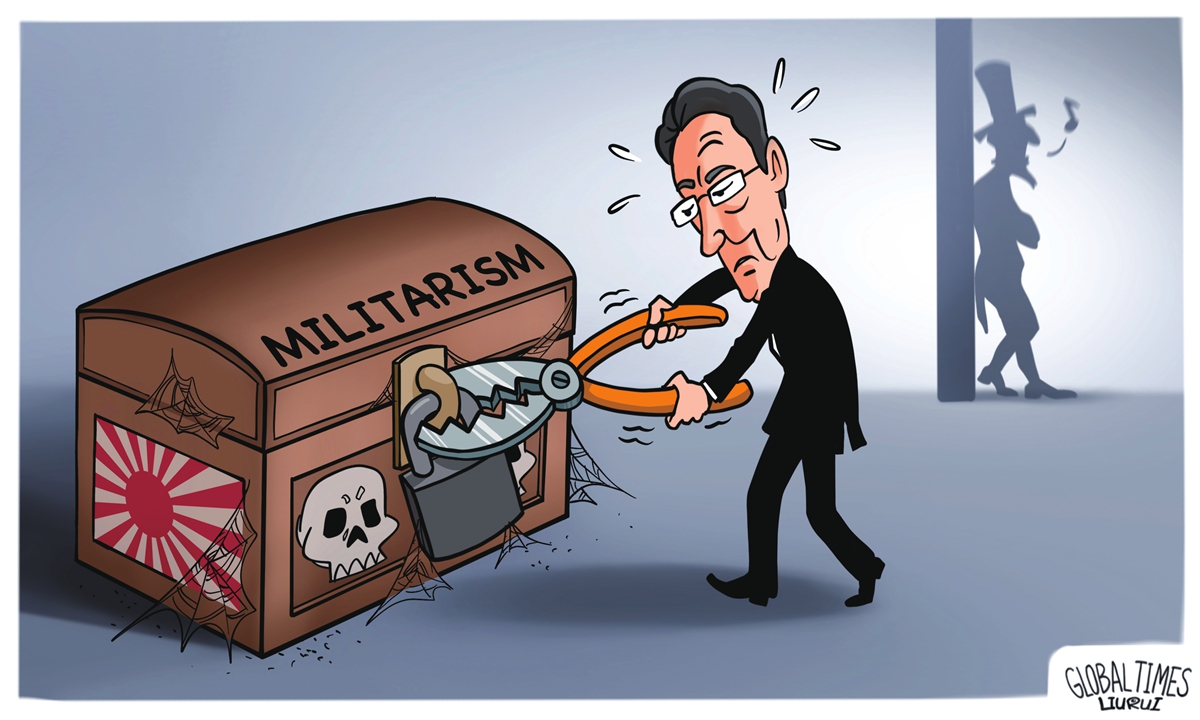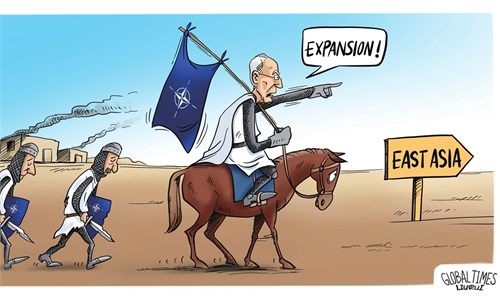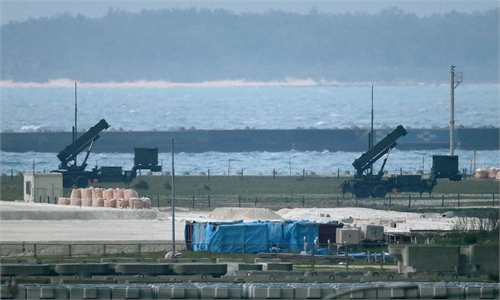'World without nuclear weapons' a fig leaf for Japan to whitewash its history at G7

Illustration: Liu Rui/GT
A world free of nuclear weapons is a positive vision. Yet when Japanese Prime Minister Fumio Kishida made a strong point on Monday that he pledged to promote the proposal at G7 summit in Hiroshima later this week, quite a few observers sensed doubt, contradictions and hypocrisy.
Kishida will likely call for states to decrease their nuclear stockpiles and disclose information on the production of fissile materials such as highly enriched uranium and plutonium during the summit, The Japan Times reported on Tuesday. "It is historically significant that the leaders of the G7 and invited countries are gathering in the symbolic place of the pledge for peace," Kishida said, according to The Yomiuri Shimbun on Monday.
It sounds too good to be true. Is Japan genuinely determined to promote a nuclear-weapons-free world? Since it is both reluctant to name who launched the nuclear weapons and why it launched them, quite a few people feel that Japan is merely taking advantage of the G7 platform to whitewash its own history and portray itself as a victim, in an attempt to improve its international favorability and global status. The concept of a world free of nuclear weapons is just its fig leaf to cover its hypocrisy.
By promoting the agenda of world without nuclear weapons, Japan is simply trying to seize a moral high ground. Granted, it is the only country to have suffered nuclear attacks. But what is the whole picture of that history? The whole picture is - Japan was the cruelest and biggest perpetrator in the Eastern Hemisphere during World War II. It brought disasters to other countries, which eventually backfired. Only with a correct understanding of history can Japan be qualified to promote a nuclear-weapons-free world, head up and back straight, Yang Xiyu, a senior research fellow at the China Institute of International Studies, told the Global Times.
Japan is the perpetrator both in history and at present. "On the one hand, Japan is portraying itself one-sidedly as a victim, on the other, it is dumping nuclear-contaminated water into the sea, bringing unknown risk and harm to regional countries and the world, the contrast is ironic," Wang Guangtao, an associate research fellow at the Center for Japanese Studies of the Shanghai-based Fudan University, told the Global Times.
What's more hypocritical is that while Japan raises the banner of a world without nuclear weapons and pretends to strive for the greater good for the world, it is simultaneously rushing forward on the path of military expansion.
In December 2022, the Kishida administration approved three new strategic documents, which abandoned its "exclusively defensive-oriented" policy. It seeks to raise defense spending to 2 percent of GDP by 2027, putting Japan on par with NATO's defense spending standard. This will give the country the third-largest defense budget in the world. Not to mention that Kishida has been proactively hyping "Today's Ukraine, Tomorrow's East Asia," and boosting cooperation with NATO.
As a result, it is natural when Kishida appears on the cover of Time magazine's online edition of the May 22/May 29 issue, the media headlined, "Prime Minister Fumio Kishida wants to abandon decades of pacifism - and make his country a true military power" on the cover. Yet after the Japanese side took issue with the headline, the magazine revised it, reading that Kishida "is giving a once pacifist Japan a more assertive role on the global stage."
The adjusted headline cannot change people's impression that the original version was accurate. The specter of militarism in Japan is eager for action. Military ambition in the country is bubbling. How can Japan still call itself a pacifist country when it constantly seeks expanding its military forces and amending its constitution in the pursuit of being able to make military provocations and even attacks?
To realize a nuclear-weapons-free world, the key is to break the Cold War mentality and group confrontation, which is the source of today's security dilemma. Otherwise, the call for a world without nuclear weapons is merely a pipe dream. If Japan truly wants to promote the vision, it should have the guts to take the lead in opposing the US-led "collective security" - security for only a small group of Western countries - and advocate for a shared security for the world, Yang said.
Unfortunately, Japan is not doing it right. It is escalating vigilance and hostility and consolidating camp confrontation. It is not promoting a world free of nuclear weapons; instead, it is pushing itself down the path of war.


